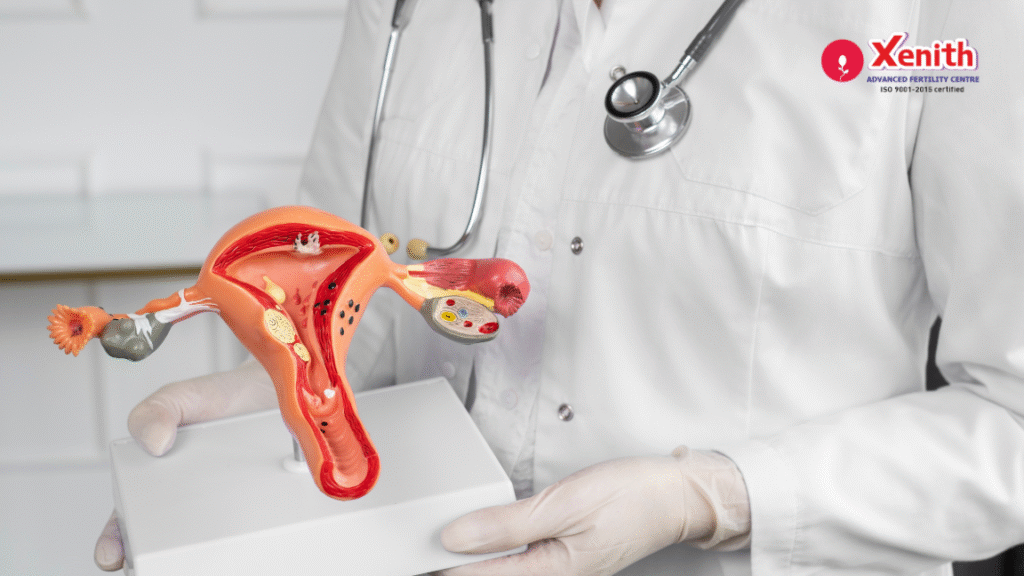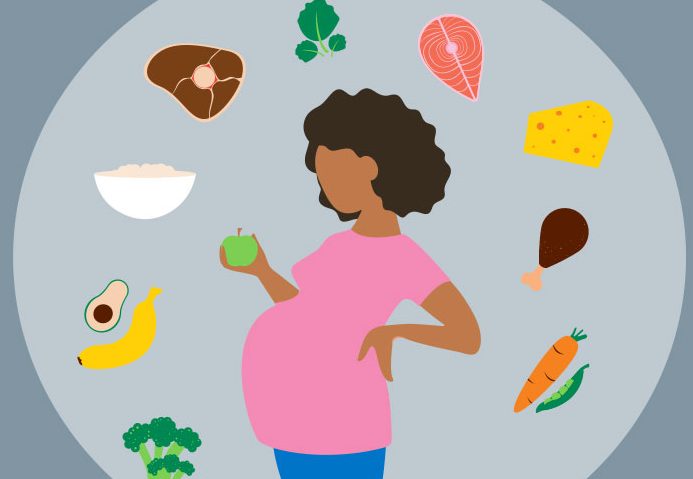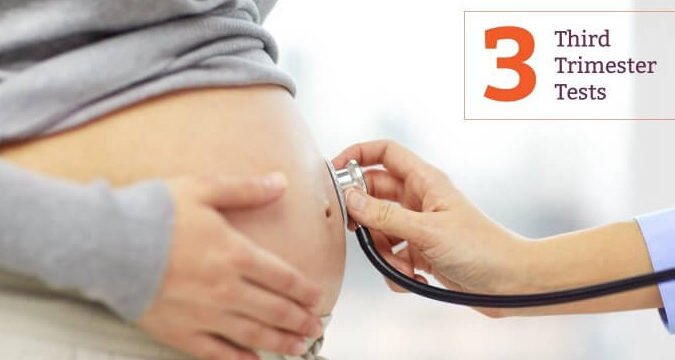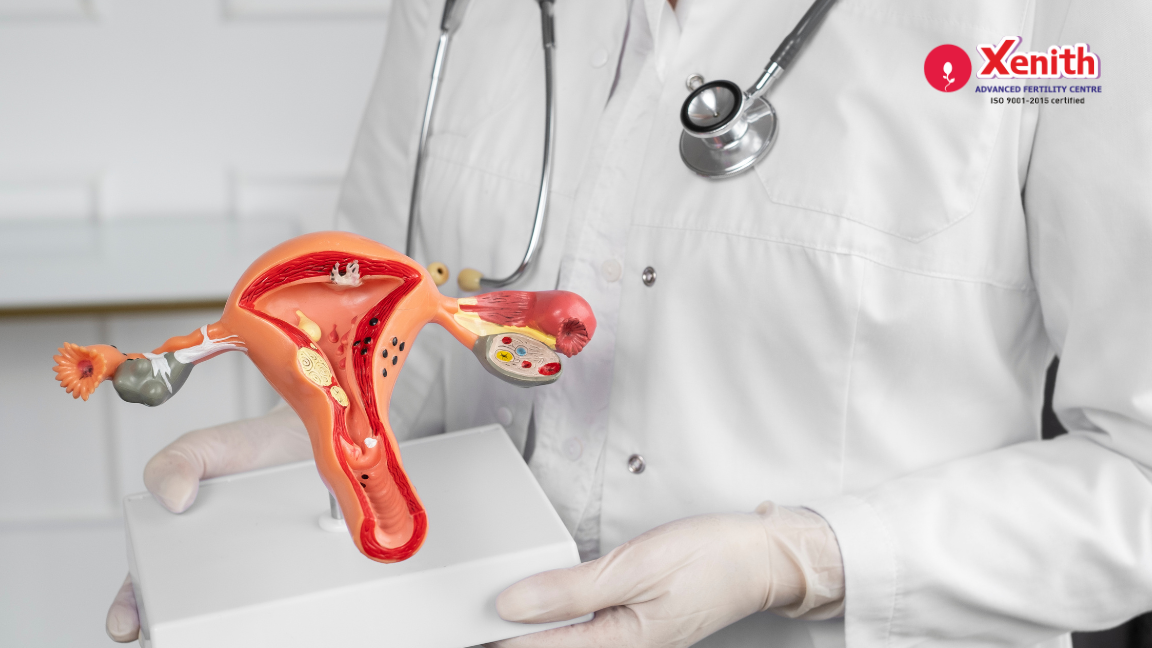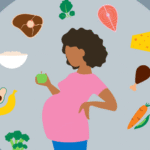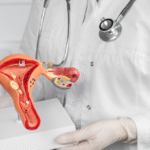Now Reading: Is Your Body Baby-Ready – How to Tell
-
01
Is Your Body Baby-Ready – How to Tell
Is Your Body Baby-Ready – How to Tell

Yes, your body can be ready for a baby. But how do you really know?
This question is important for many women. Preparing for a baby involves many physical and emotional aspects. It requires more than just the desire to become a parent. You need to ensure your body is in the right condition to support new life.
This involves checking your health, lifestyle, and nutritional habits. Knowing if your body is baby-ready can help you plan effectively. It can make your journey to parenthood smoother and more joyful. In this guide, we will explore what it means for your body to be baby-ready. We will discuss essential signs and factors to consider. This information can help you decide if it’s the right time for you.
Signs Of Fertility
Understanding the signs of fertility can be a crucial step in preparing your body for pregnancy. Whether you’re actively trying to conceive or simply planning for the future, recognizing these signs can empower you with knowledge and confidence. Let’s dive into two key indicators: your menstrual cycle and ovulation.
Regular Menstrual Cycle
Consistency in your menstrual cycle is a strong sign of fertility. If your cycle falls between 21 to 35 days, it’s considered regular. This regularity suggests that your reproductive system is functioning well.
Are you tracking your cycle? Many women find it helpful to use apps or calendars. Tracking can reveal patterns that might otherwise be missed. A regular cycle means your body is preparing for potential pregnancy each month.
Personal story: When I first started tracking my cycle, I discovered a regular pattern that helped me pinpoint my most fertile days. This simple practice can provide peace of mind and valuable insights.
Understanding Ovulation
Ovulation is when an egg is released from your ovary, and it’s a critical time for conception. Do you know when you ovulate? Recognizing ovulation signs can enhance your chances of getting pregnant.
Look for physical signs like a slight rise in body temperature or changes in cervical mucus. You might feel mild discomfort known as mittelschmerz, indicating that ovulation is occurring.
Consider using ovulation prediction kits. They’re an easy way to identify your fertile window. The clearer you are about your ovulation, the more you can optimize your chances of conception.
Ask yourself: Are you aware of your body’s signals? Understanding these signs can make all the difference in your journey to becoming baby-ready.
Nutritional Health
Preparing your body for pregnancy involves more than just physical readiness. Nutritional health plays a crucial role. Eating right boosts fertility and supports a healthy pregnancy journey.
Balanced Diet Importance
A balanced diet provides essential nutrients for your body. Eating a variety of foods ensures you get all the vitamins and minerals you need. Whole grains, lean proteins, fruits, and vegetables should fill your plate. These foods help regulate hormones and improve your overall health.
Healthy fats are important too. They support brain development in the baby. Omega-3 fatty acids, found in fish and seeds, are beneficial. Avoid processed foods and excessive sugars. They can hinder fertility and cause weight gain.
Key Vitamins And Minerals
Certain vitamins are vital for a baby-ready body. Folate is crucial for fetal development. It reduces the risk of birth defects. Leafy greens and beans are rich in folate. Iron helps carry oxygen to the baby. Red meat, spinach, and lentils are good sources.
Calcium strengthens bones and teeth. Dairy products and almonds provide calcium. Vitamin D aids calcium absorption. Spend time outdoors for natural Vitamin D. Zinc supports immune function and reproductive health. Nuts and seeds are excellent sources.
Ensure you get these nutrients daily. They are essential for your body and your future baby. A healthy diet sets the foundation for a successful pregnancy.
Physical Fitness
Getting your body baby-ready involves more than just tracking your cycle. Physical fitness plays a crucial role in preparing for pregnancy. It can affect your energy levels, mental health, and even fertility. But how can you tell if your body is physically fit for the journey ahead? Let’s explore some critical aspects of physical fitness to ensure you’re on the right path.
Ideal Body Weight
Maintaining an ideal body weight can enhance your chances of conception. Your weight directly influences your hormone levels, which play a pivotal role in fertility. Are you within a healthy weight range?
A balanced diet and regular exercise can help you reach and maintain this ideal weight. You don’t have to aim for a supermodel figure. Focus on feeling strong and healthy. Consider consulting a healthcare professional to determine what weight is healthiest for you.
Exercise And Fertility
Exercise is more than just a way to lose weight; it can positively impact fertility. Regular physical activity can regulate hormones and improve ovulation. Are you incorporating exercise into your daily routine?
Choose activities that you enjoy, such as walking, swimming, or yoga. These exercises promote good circulation and reduce stress, both beneficial for conception. But remember, moderation is key. Excessive exercise might have the opposite effect on fertility.
Reflect on your current fitness routine. Is it supporting your goal of becoming baby-ready? Small changes can make a big difference. Start today and see how your body responds.

Mental Well-being
Preparing for a baby involves understanding both mental and physical readiness. Mental well-being plays a crucial role. Feeling calm and emotionally stable indicates you’re on the right path.
Preparing your body for a baby is not just about physical readiness. Mental well-being plays a crucial role in ensuring you’re fully prepared for the journey of parenthood. Being mentally ready means having the ability to handle stress, process emotions, and maintain a positive mindset. Let’s dive into how you can assess your mental well-being and get baby-ready.
Stress Management
Effective stress management is vital for mental well-being. Ask yourself: how do you handle stress? Do you have strategies in place to calm your mind when things get tough?
Consider practices like mindfulness or yoga, which can help reduce stress levels. Simple techniques, such as deep breathing or taking short walks, can make a big difference. You might even want to try journaling to help process your thoughts and feelings.
Having a support system is equally important. Friends, family, or support groups can offer advice and encouragement. Sharing your concerns with someone you trust can lighten the mental load.
Emotional Preparedness
Emotional preparedness involves understanding and managing your emotions. Are you ready to face the emotional ups and downs that come with parenthood?
Reflect on how you handle emotions like frustration or sadness. Do you communicate your feelings effectively? Practicing emotional awareness can help you recognize and address emotions before they become overwhelming.
It’s helpful to consider scenarios you might face as a parent. How would you handle a sleepless night or a baby’s constant crying? Visualizing these situations can prepare you emotionally and build resilience.
Finally, think about your own childhood experiences. How might they influence your parenting style? Understanding this can help you make conscious choices about how you want to raise your child.
Taking the time to assess your mental well-being is a valuable step. Are you ready to embrace the emotional journey of parenthood?
Medical Check-ups
Regular medical check-ups help determine if your body is baby-ready. They assess overall health and identify any concerns. Knowing your physical readiness can support a healthy pregnancy journey.
Preparing your body for pregnancy is a significant step towards ensuring a healthy journey for both you and your future baby. Medical check-ups are essential in this process, as they offer insights into your overall health and readiness. They can help identify any potential health issues that might impact pregnancy, allowing you to address them early. Investing time in these check-ups can make a substantial difference in your pregnancy experience.
Pre-conception Screening
Pre-conception screening is your starting point. It’s a comprehensive health check that evaluates your physical condition. Doctors often assess factors like your weight, blood pressure, and vitamin levels. You may be surprised to learn how something as simple as a vitamin deficiency can affect your baby’s development.
What’s your daily vitamin intake like? Being aware and proactive can prevent complications. Regular screening also includes checking for infections that could affect fertility. Imagine discovering an underlying issue now that could save you from stress later.
Genetic Testing
Genetic testing is another important aspect of medical check-ups. This test examines your genetic makeup for any inherited conditions that might affect your baby. It’s fascinating how our genes can impact more than just our traits.
Have you considered what genetic traits you might pass on? Understanding this can help you plan better. If you have a family history of certain conditions, it’s wise to discuss them with your doctor. The insights from genetic testing can guide you in making informed decisions.
Engaging in medical check-ups not only ensures your body is baby-ready but also empowers you with knowledge. Are you ready to take this crucial step? Your health decisions today can pave the way for a smoother pregnancy tomorrow.
Lifestyle Factors
Preparing for a baby involves more than just physical health. Lifestyle factors play a crucial role. They determine your readiness for a new life. A healthy lifestyle supports conception and pregnancy. It boosts overall well-being. Let’s explore key lifestyle factors that can make your body baby-ready.
Avoiding Harmful Substances
Avoiding harmful substances is vital. Substances like alcohol and tobacco harm fertility. They impact your baby’s health too. Limit caffeine intake. Excessive caffeine affects conception. Avoid recreational drugs. They pose significant risks. Opt for a diet rich in nutrients. Fresh fruits and vegetables boost health. Choose whole grains and lean proteins. Hydration is key. Drink plenty of water daily.
Healthy Sleep Patterns
Healthy sleep patterns support fertility. Adults need 7-9 hours of sleep. Restful sleep restores energy. It balances hormones and reduces stress. Create a calming bedtime routine. Limit screen time before bed. Keep your bedroom dark and quiet. Maintain a consistent sleep schedule. Wake up at the same time daily. Prioritize quality rest for baby-readiness.
Partner’s Health
Preparing for a baby involves more than just the health of the mother. Your partner’s health plays a crucial role in conception and the overall journey to parenthood. Understanding and optimizing your partner’s wellness can significantly impact your chances of getting pregnant and having a healthy pregnancy. So, how can you tell if your partner is baby-ready?
Sperm Quality Indicators
Did you know that sperm quality is as important as quantity? It’s not just about the numbers but the vitality of the sperm. Key indicators include:
- Motility: Healthy sperm should move efficiently.
- Shape: Well-formed sperm are more likely to fertilize an egg.
- Count: A higher sperm count increases the chances of conception.
Imagine your partner’s sperm as athletes in a race. They need to be fast and healthy to reach the finish line. If your partner is worried about these factors, a visit to the doctor can provide clarity and options.
Supporting Partner’s Wellness
Your partner’s lifestyle choices directly affect sperm health. Consider these actionable steps:
- Encourage a balanced diet rich in antioxidants.
- Promote regular exercise to maintain a healthy weight.
- Advise quitting smoking and limiting alcohol intake.
You might find it helpful to work together on these goals. Why not cook healthy meals together or enjoy evening walks? These activities not only improve wellness but also strengthen your relationship.
Are you both sleeping well? Adequate sleep is crucial for hormone balance and overall health. Investing in a routine that promotes quality rest can make a difference.
Remember, your partner’s health is a shared journey. By supporting each other, you create a nurturing environment for your future family. Are there areas where you both could improve to become truly baby-ready?
Recognizing Red Flags
Preparing your body for a baby is a significant step. It involves understanding potential red flags that might indicate issues. Recognizing these signs early can help you address them promptly. Being aware of certain symptoms can make a big difference. You can then seek the appropriate help.
Infertility Symptoms
Infertility can present various symptoms. Irregular periods often point to potential issues. Heavy or painful periods might be another sign. Hormonal changes can cause skin problems. Weight changes can also indicate underlying problems. Difficulty in conceiving after a year is a major sign. These symptoms should not be ignored. They might indicate deeper reproductive health issues.
When To Seek Help
Understanding when to seek help is crucial. If you’re under 35, try for a year. Over 35? Consult after six months. Early consultation can uncover treatable issues. Doctor visits can provide clarity and reassurance. Don’t hesitate to reach out for support. Early intervention can improve chances significantly.
Frequently Asked Questions
How Do You Know If Your Body Is Ready To Have A Baby?
Your body signals readiness for pregnancy through regular menstrual cycles, stable health, and balanced nutrition. Consult a doctor to assess reproductive health. Emotional preparedness and support systems are crucial. Consider factors like lifestyle, age, and stress management. Discuss family planning options with your partner.
How Do You Know Your Body Is Preparing For Birth?
You may experience regular contractions, lower back pain, or a feeling of pressure in your pelvis. Your cervix starts dilating, and you might notice a mucus plug discharge. Increased fatigue and nesting urges are common signs. If unsure, consult your healthcare provider for guidance.
How Do You Know Your Body Is Ready For Delivery?
Signs of readiness for delivery include regular contractions, water breaking, and cervical dilation. Consult your doctor for confirmation. Stay alert for these symptoms, indicating labor is imminent. Preparing mentally and physically can ease the process. Always have your hospital bag ready and contact your healthcare provider promptly.
How Do I Know When My Baby Is Ready To Come?
Signs include regular contractions, water breaking, and lower back pain. Contact your healthcare provider for guidance.
Conclusion
Preparing for a baby is an exciting journey. Your body needs care and attention. Listen to its signals. Ensure you maintain a healthy diet. Regular exercise keeps you fit and ready. Consult with healthcare providers for guidance. They offer valuable insights.
Emotional readiness is important too. Embrace the changes with positivity. Every step brings you closer to your dream. Trust your instincts and enjoy the process. Supporting your body now sets a strong foundation. You are on the right path. Remember, every journey is unique.
Stay informed and confident in your choices. Your baby-ready body awaits.






